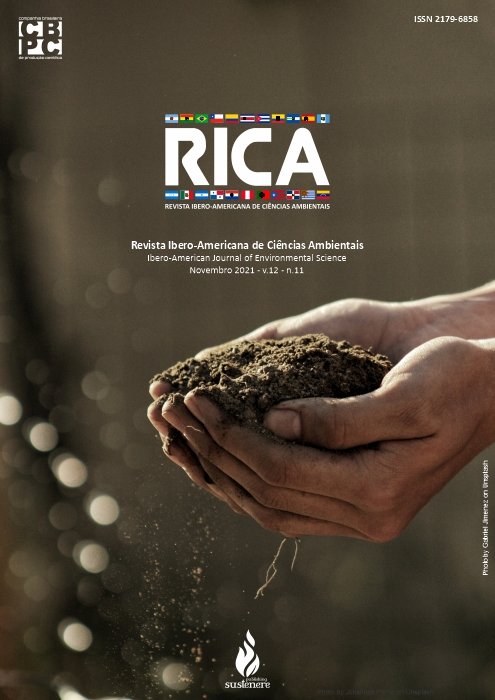Water quality index in public supply springs: IQA carried out in different springs of the córrego laranjal sub-basin in the municipality of Pires do Rio (GO)
DOI:
https://doi.org/10.6008/CBPC2179-6858.2021.011.0023Keywords:
Water resources, Physical, chemical and microbiological parameters, Environmental monitoring, Water mappingAbstract
Pollution that watercourses are likely to suffer, leading to the need for prevention plans and environmental remediation in order to ensure conditions of current and future uses for various purposes. For this, are established monitoring programs of water quality, generating large number of analytical data that needs to be transformed into a synthetic format for describing and representing an understandable and meaningful way, the current status and trends of water, so it can be used as management information and as a tool in making decisions concerning water resources. The WQI water quality index is the main index used, being important in monitoring the water course, facilitating decision making. In this work aimed to survey and map all the springs of the Laranjal Stream This study aimed to do the survey and mapping all springs Laranjal stream and determine the water quality index (WQI). were identified 12 springs and two points were selected along the stream that makes up the Laranjal stream, and had their physical, chemical and microbiological characteristics were monitored throughout 2018, in two evaluations performed in the dry season and rainy. The determination of the WQI index of the springs resulted in values that varied between 59 and 79 in the dry period; and between 58 and 74 in the rainy season score. This shows that all the evaluated springs WQI showed satisfactory ("good" or "excellent"). With the evaluation of the quality of water was possible to observe the relationship between the quality parameters, as well as their influence with the macroscopic characteristics of the springs. Thus, the information obtained indicates that, despite the good quality of the waters, the assessment of the environmental situation of the springs warns of the need for future strategies, aimed at planning for territorial planning and environmental management of watersheds.
Downloads
Downloads
Published
Issue
Section
License
Copyright (c) 2021 Ibero-American Journal of Environmental Sciences

This work is licensed under a Creative Commons Attribution-NonCommercial-NoDerivatives 4.0 International License.
The CBPC - Companhia Brasileira de Produção Científica (Brazil CNPJ: 11.221.422/0001-03) the material rights of the published works. The rights relate to the publication of the work anywhere in the world, including rights to renewals, expansions and dissemination of the contribution, as well as other subsidiary rights. All electronically published works may subsequently be published in printed collections under the coordination of this company and / or its partners. The authors preserve the copyright, but are not allowed to publish the contribution in another medium, printed or digital, in Portuguese or in translation.









